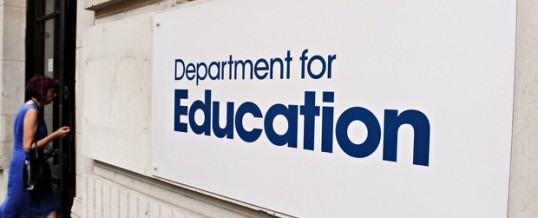By Sheila Mckenzie-
Mandatory face masks will not be required for the autumn exams, both G.C.S.E and A level pupils unsatisfied with their exams will sit, the Department Of Education has confirmed today.
The British public are mandated to wear masks in shops and on public transport, but school pupils will not be required to wear masks for their autumn exams.
The government has released further guidance on how schools must prepare for autumn exams to best protect public health. Thousands of Uk pupils were unsatisfied with their exams results this year , following the A levels fiasco which initially saw centre assessed grades downgraded. The disastrous state of affairs was eventually reversed, and students received the awarded grades by their teachers. However, the opportunity to take the exams again was set for the Autumn this year.
Under the new guidelines, the government said it is not mandating face coverings in education settings generally because a system of controls, applicable to all education environments, provides additional mitigating measures.
The Department Of Education said the government is not recommending face coverings as being necessary in education settings generally because a system of controls, applicable to all education environments, provides additional mitigating measures. Schools and colleges will have the discretion to require face coverings in indoor communal areas where social distancing cannot be safely managed if they believe that it is right in their particular circumstances. However, they will not be mandatory for the autumn exams.
Apart
The guidelines states that pupils will be expected to be kept apart in safe spaces before exams.
Schools will be expected to “identify a location where candidates will wait before the exam that can support social distancing between group ‘bubbles’”.
In addition all candidates must be kept separate from other pupils arriving at school. The guidance tells schools it must make sure there “is a plan to manage candidates leaving the room and site” – taking into account different exam finishing times and extra time for some pupils.
These considerations also apply in private exam centres or “wherever the exams are taking place” and schools must ensure candidates maintain social distancing from other members of the public if necessary.
However, “all other candidates, whether in different group bubbles, private candidates or those returning to school or college to take exams, should be seated 2 metres apart from each other.”
Invigilators are allowed to walk up and down aisles between desks, but “there must also be points in the room where an invigilator can stand at least 2 metres from the nearest desks and see all the candidates in the room”.
Under the guidelines, candidate numbers will not be limited, but windows are expected to be open. There are no requirements for an overall limit on the number of candidates who can sit in a room, “as long as desks are correctly spaced”, the guidance advises the opening of windows and doors for ventilation.
The guidelines also adds that: “Good ventilation is important and you should maximise this wherever possible”
Information
The guidance advises school leaders will need to “collect and keep” contact information for candidates and invigilators “so that you can share it with NHS Test and Trace if needed”.
The government warns this is “particularly important for any external visitors” such as invigilators and candidates not enrolled at the school, with schools advised to cross reference contact details with a prepared seating plan.
Exam rooms must be cleaned after each exam, and frequently touched surfaces, including the backs of chairs where candidates pull chairs out to sit, should be cleaned after every exam.
The guidance adds: “Rooms do not need to be left empty between exams, provided they are cleaned properly each time.”
According to the guidance, candidates and invigilators do not need to wear face coverings – unless they want to.
However, they “should wear face coverings in communal areas if the exam centre is in an area of local intervention”.
Minimise Contact
Invigilators are permitted to move between different schools and colleges, they must “minimise contact and maintain as much distance as possible from other staff”.
Schools are also obliged to tell invigilators what they need to do to minimise contact and maintain as much distance as possible from other staff.
In addition the guidance states “invigilators do not need to wear gloves when collecting exam scripts”. The government says schools “should advise invigilators and other staff to stand alongside candidates when interacting with them, rather than face to face”.
Staff are advised to maintain a two metre distance or consider using a separate room from other candidates, in relation to all encounters over 15 minutes where individual support is concerned.
In circumstances where two metre distance cannot be maintained they are to avoid close face to face contact and minimise time spent within one metre of others.
The guidance however, leaves provision for that arrangements that may not be possible when working with some candidates who have complex needs. In such circumstance, candidates’ educational support should be provided as normal during exams”.




